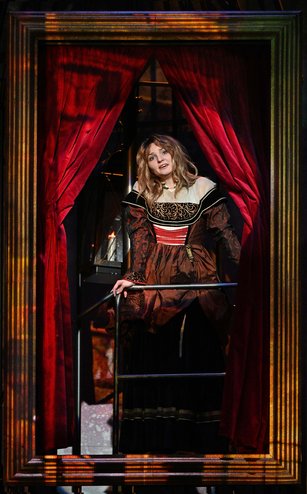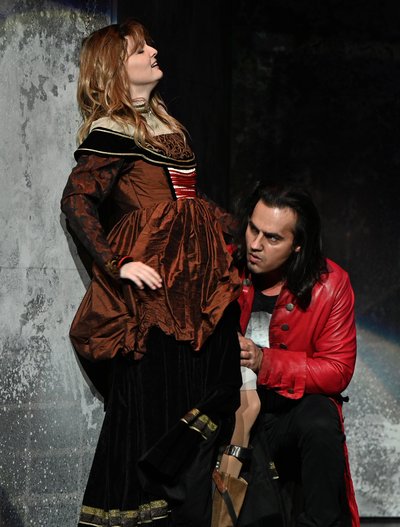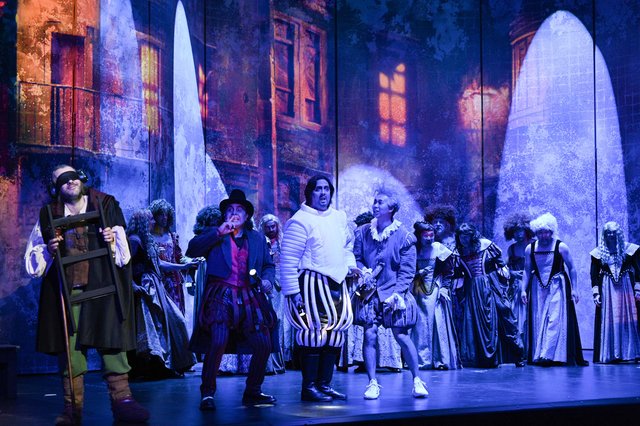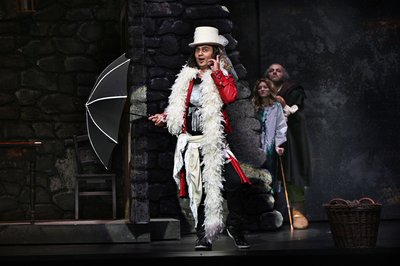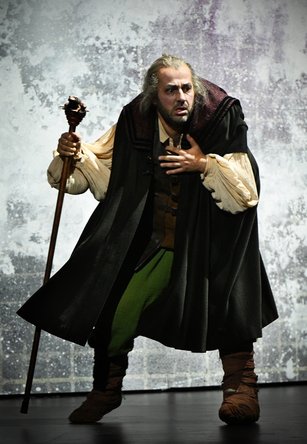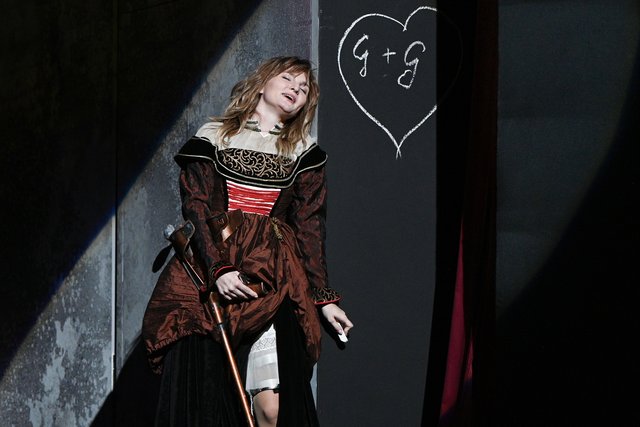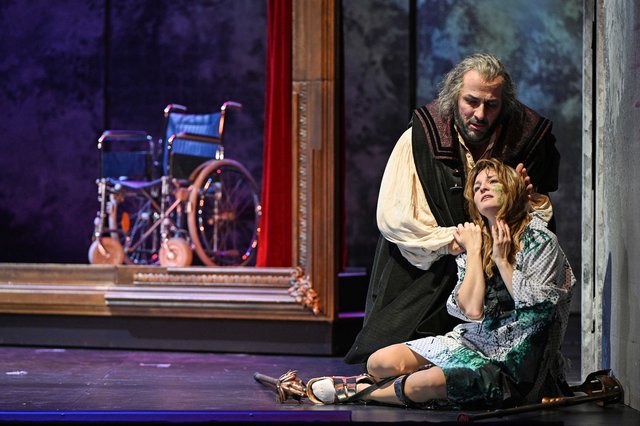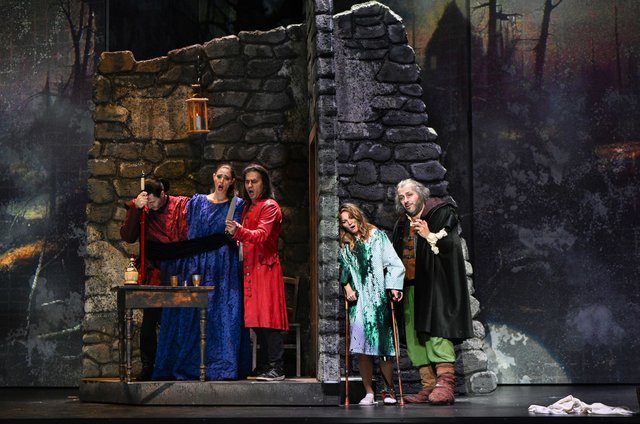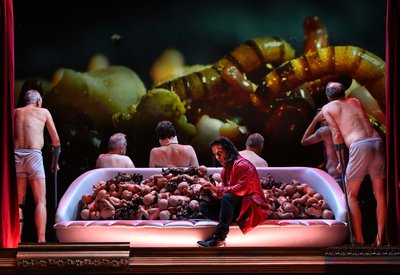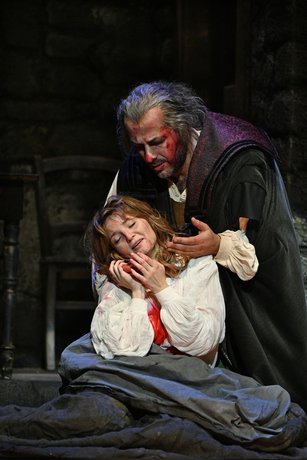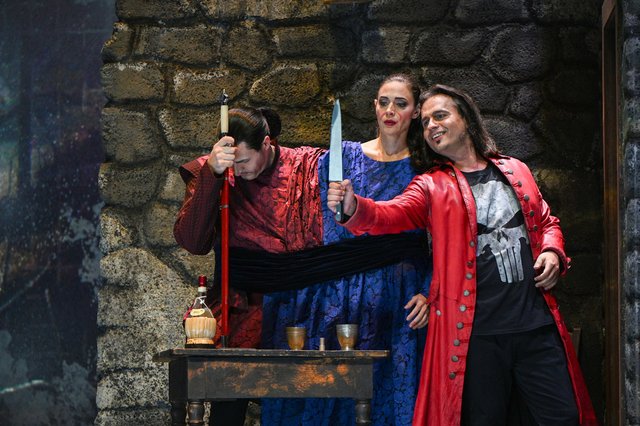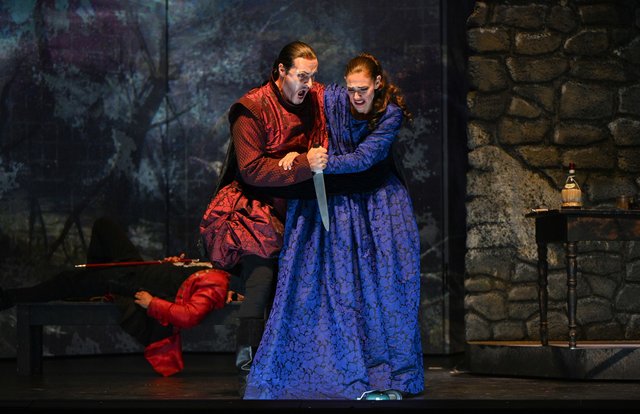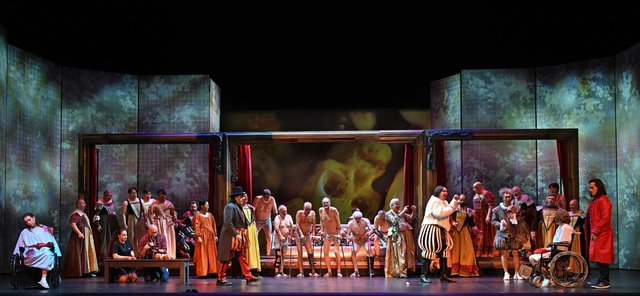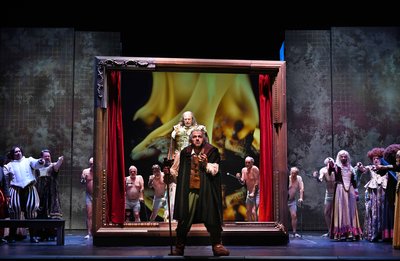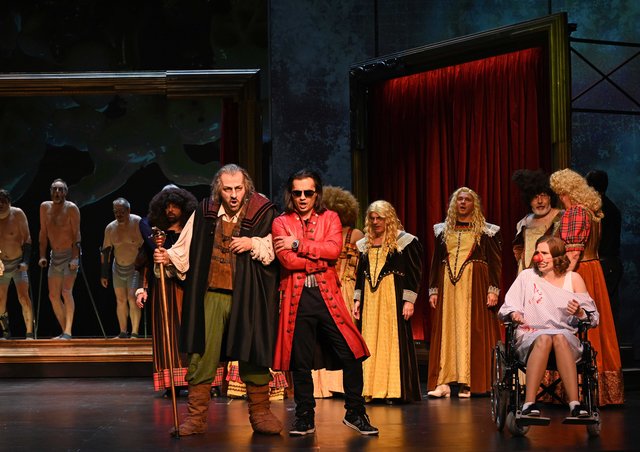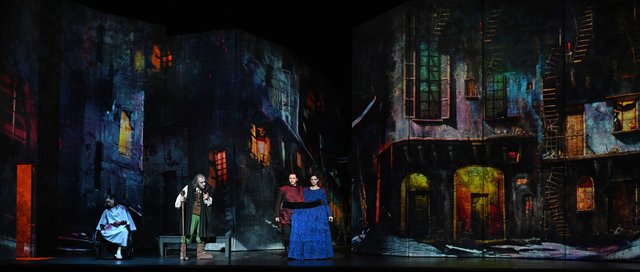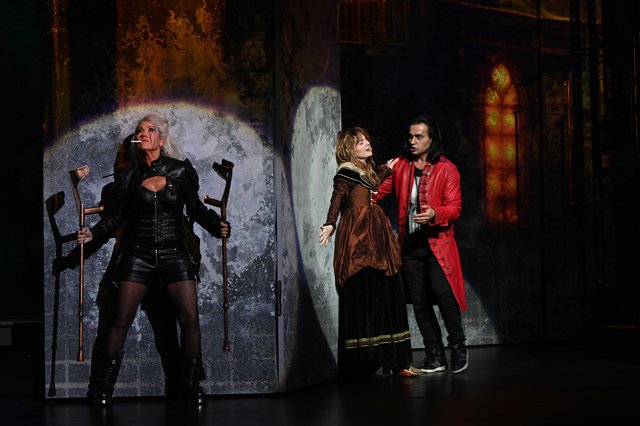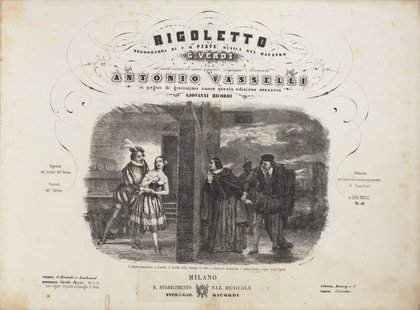Rigoletto
Giuseppe Verdi (1813 – 1901)
Melodramma in three acts
Libretto by Francesco Maria Piave
– In Italian with surtitles in German and English–
Conductor: Daniel Johannes Mayr | Director: Jürgen R. Weber
1 hour 30 minutes one intermission»It seems to me the best subject I have set to music so far, from the point of view of effect, is RIGOLETTO […]. It has very powerful situations, variety, verve, pathos.« (Verdi to Antonio Somma, April 22, 1853)
With the description of the qualities of his melodrama, which had its premiere in 1851 and was based on Victor Hugo’s drama LE ROI S’AMUSE, Verdi names the challenges to be met by every production of his opera: RIGOLETTO is a masterpiece, the peculiarity of which is in the confrontation of the psychological portrayal of its characters with the implausibility of its plot. The story comes right out of a romantic gothic novel: as jester in the service of the Duke of Mantua, the deformed Rigoletto is the object of ridicule of all the courtiers. Without distinction he mocks all those who his master — a notorious skirt chaser — has brought to destitution. At the same time, he fears for his own daughter Gilda that she could be compromised by a similar destiny and so he keeps her hidden. But Rigoletto must contend with the idea that his attempt to preserve his intact private life in the midst of surroundings that are dominated by arbitrary abuse of power and violence, is bound to fail: Gilda is seduced by the Duke and even sacrifices her life for him.
Due to Verdi’s music, the emotional plausibility of Gilda’s character wins over the improbable story. Ever since 1851 RIGOLETTO was first performed in Venice it has moved audiences in opera houses all over the world. Together with IL TROVATORE and LA TRAVIATA, RIGOLETTO belongs to the so-called »popular trilogy« which marks the beginning of the mature period of Verdi’s principle music dramas.
